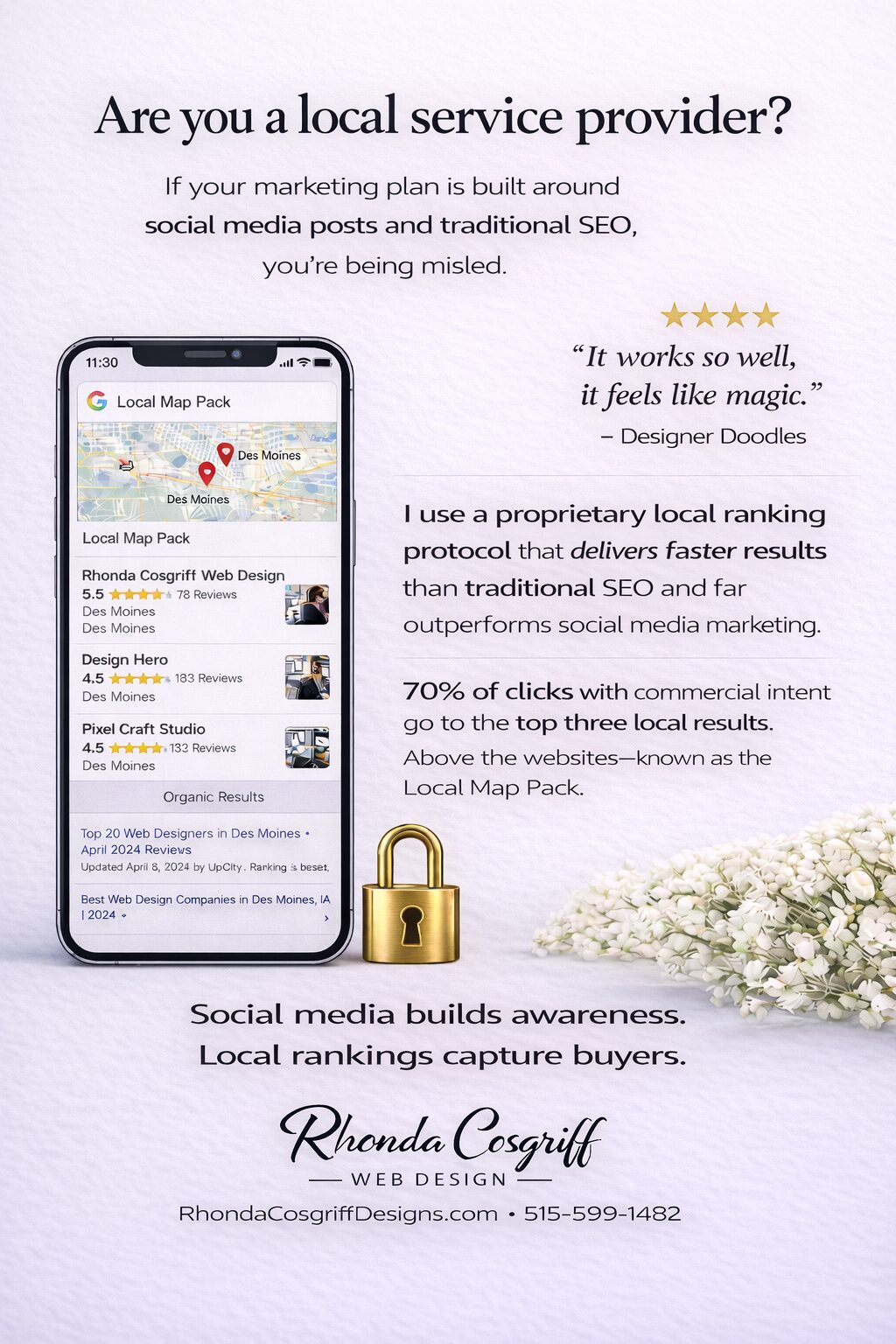Hiring a web developer who specializes in your exact industry might sound like a smart move—after all, they speak your language, they’ve “done it before,” and they claim to have a proven formula.
But here’s the hard truth:
Vertical marketing strategies help the web developer—not necessarily the client.
And unless you know exactly what to ask, this kind of niche specialization can quietly work against your business while fueling someone else’s growth. Let’s break it down.
What Is a Vertical Web Developer?
A vertical web developer is someone who only builds websites for one type of business. They might exclusively work with:
Dentists
Law firms
Contractors
Med spas
Real estate agents
It’s a vertical-focused model—and it’s often backed by a “plug and play” approach. They’ve got the layout, the funnel, the keywords, and the content down to a science. Sounds efficient, right?
It is—for them.
Why This Model Benefits the Developer (and Not You)
When a developer builds out dozens—or hundreds—of sites for the same industry, they:
Maximize profits by reusing templates, funnels, and SEO frameworks.
Create a scalable business that runs on rinse-and-repeat strategies.
Rarely offer exclusivity, meaning your competitors get the same blueprint.
It’s a brilliant business model for the developer. But what happens to your brand when your competition is literally running the same playbook?
Here’s the Problem
1. You’re Paying to Compete With Yourself
If they serve more than one business in your area or niche, you’re all competing for the same search terms. There’s no secret sauce—they’re just duplicating what worked last time.
2. Cookie-Cutter = Zero Differentiation
Your site will likely look and sound like everyone else in your industry. Same flow, same CTAs, same page titles. That doesn’t build trust—it blends in.
3. There’s No Room for Innovation
These developers aren’t focused on pushing your brand forward. They’re focused on repeating what already worked—for someone else. That means you miss out on creative strategies that actually set you apart.
Cons:
❌ 1. You Compete With Other Clients of the Same Developer
If your web developer or SEO agency works with multiple businesses in your industry—especially in your local area—you’re all fighting for the same rankings, same leads, same market share.
You’re paying to implement the same strategy they just sold your competitor.
❌ 2. No Exclusivity = Cannibalized Rankings
Vertical agencies often don’t offer territory exclusivity, because it limits their profits.
That means their SEO strategy could push another client higher than you in the rankings—with the same keywords you’re targeting.
❌ 3. Cookie-Cutter Websites
Most vertical web developers use pre-built templates. They just swap out the logo and maybe change a few colors.
This leads to generic websites that all look and feel the same, which weakens your brand and kills conversions.
❌ 4. Duplicate SEO Content
These developers often reuse the same copy, metadata, service page structures, and blog formats across all their clients.
That creates duplicate content issues, hurting your SEO and potentially causing ranking penalties from Google.
❌ 5. No Custom Strategy or Differentiation
You’re not getting a marketing strategy tailored to your business. You’re getting what worked for someone else.
That makes it harder to stand out, especially in saturated markets.
❌ 6. Stagnant Innovation
Vertical agencies often get stuck in a loop of “what’s worked before.”
They don’t bring in fresh ideas or outside-the-box strategies from other industries—which are often what actually create breakthrough results.
❌ 7. You’re a Line Item, Not a Partner
In a vertical strategy, you’re one of dozens (or hundreds) of near-identical clients.
There’s no incentive to go above and beyond—just to keep you renewing your subscription like the rest of the churn-and-burn model.
❌ 8. Conflicts of Interest Are Built-In
Imagine hiring a developer who’s also actively trying to rank your direct competitors.
If everyone’s getting the same tools, tactics, and templates—who really wins?
❌ 9. No Brand Voice or Identity
With generic copy and templated designs, your business loses its unique voice.
The end result feels like “just another [insert industry here] site,” instead of a brand customers trust.
❌ 10. It’s a Win-Win… for the Developer
The vertical model is designed to scale for the agency—not to create a competitive advantage for you.
Unless you negotiate exclusive rights and custom strategy, you’re just another cog in their machine.
Want to Make This Work? You Better Ask the Right Questions
If you’re still considering hiring a niche developer, fine—but you’d better ask:
“Do you offer territory exclusivity?”
“How many other clients in my market have you worked with?”
“Will my SEO, structure, and content be custom—or recycled?”
Spoiler: if you’re asking those questions, you’re making the developer uncomfortable—because that goes against their business model. And that’s the entire point.
Why We Don’t Play That Game
At Rhonda Cosgriff Web Designs, we don’t build for the developer’s convenience. We build for the client’s competitive edge.
Your strategy is custom.
Your SEO is exclusive to your area.
Your website is built to perform, not to fit inside someone else’s mass-production model.
We’re not here to sell one strategy to twenty businesses and hope one of them wins. We’re here to build the one strategy that helps you win.
Final Thought
Niche developers love vertical marketing strategies because they scale fast and sell easy.
But if you’re the client, you should be asking:
“Am I getting something built for me—or something built for their bottom line?”
We don’t believe in shortcuts that serve the agency over the business owner. We believe in giving clients the tools to stand alone, stand out, and dominate their space.
👉 Ready to build something real—without the copy-paste treatment?
Let’s talk: Contact Rhonda Cosgriff Web Designs
Discover more from Rhonda Cosgriff Web Designs
Subscribe to get the latest posts sent to your email.









